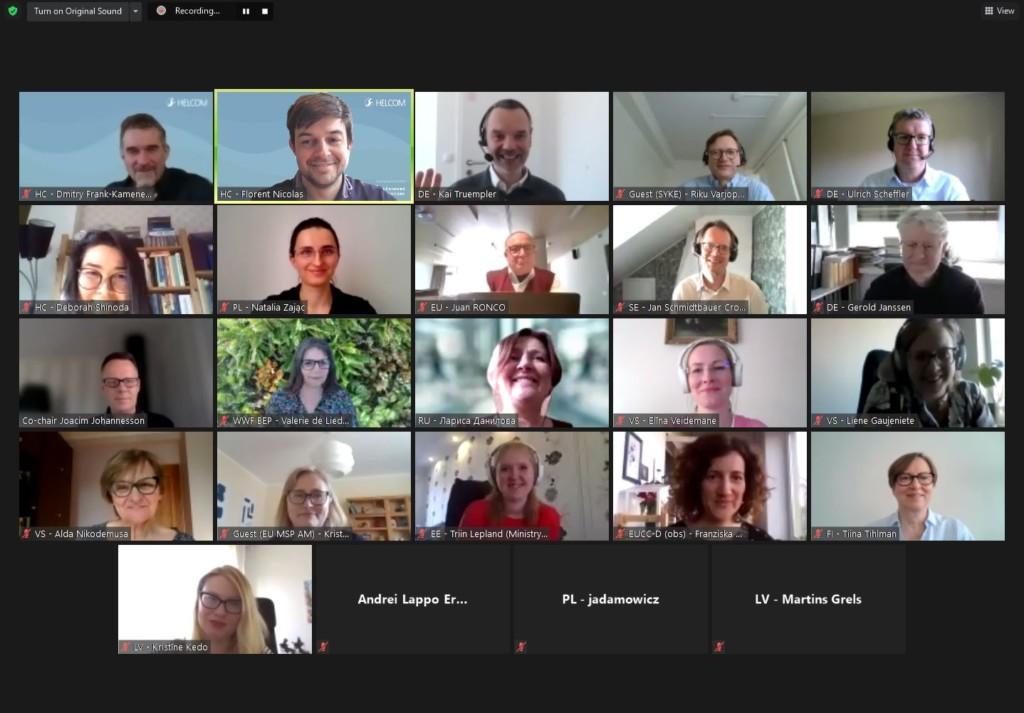
Regional coordination on maritime spatial planning (MSP) was once more the leitmotif of the latest joint HELCOM-VASAB MSP Working Group meeting, the 22nd Meeting of the joint HELCOM-VASAB Maritime Spatial Planning Working Group (HELCOM-VASAB MSP WG 22-2021) which was held online from 20 to 21 April 2021.
As part of the efforts to establish a regional MSP framework in the Baltic Sea area, it was agreed to forward the draft of the Regional Maritime Spatial Planning Roadmap 2021-2030 (MSP Roadmap) to the HELCOM decision-makers, the HELCOM Heads of Delegation (HOD), for endorsement. The MSP Roadmap is due to be adopted later this year during the next HELCOM Ministerial Meeting 2021 to be held in Lübeck, Germany on 20 October 2021. The goal of the roadmap is to facilitate and follow up the implementation of various national maritime spatial plans in the Baltic Sea as well as to lay the groundwork for their revision within an adaptive spatial planning process.
The Baltic Sea Action Plan (BSAP) and related MSP actions were also addressed during the meeting. The BSAP is due to be updated during the MM2021 and will contain a horizontal action segment on MSP, containing the measures from the existing plan that are yet to be implemented as well as new ones.
Updates on the various national maritime spatial plans were also given during the meeting, with almost all Baltic Sea countries either already having MSP plans in place or currently finalizing them. Denmark published its first maritime spatial plan earlier this March, and Poland had its plan adopted by its Council of Ministers this April.
The draft outline of a regional forum of MSP experts, the Planner’s Forum, was also presented during the meeting. Developed by the Capacity4MSP project that is led by VASAB, the aim of the forum, which may be hosted under the HELCOM-VASAB MSP Working Group as an expert body, is to establish a long-lasting platform for the exchange of practical knowledge on MSP.
Furthermore, recommendations on the role of MSP in preserving marine cultural heritage was presented by the BalticRim project. Experts from the German National Academy of Sciences Leopoldina also presented their recent discussion paper on underwater archaeology “Traces under Water”, highlighting the mutual benefits of protecting both the marine environment and underwater heritage from the common pressures arising from ammunitions, ghost nets and eutrophication. Representatives of the Baltic Sea countries agreed to investigate how MSP could support preservation of underwater cultural heritage.
The Meeting was attended by all HELCOM Contracting Parties with the exception of Lithuania. Observers from the International Council for the Exploration of the Sea (ICES), the Coastal & Marine Union (EUCC) and the World Wide Fund for Nature (WWF) also participated, as did invited guests from Spatial Foresight GmbH, the EU MSP Assistance Mechanism, the Finnish Environment Institute, the BalticRIM project, the Institute for Historical Coastal Research of Wilhelmshaven, Germany, and the University of Copenhagen, Denmark.
